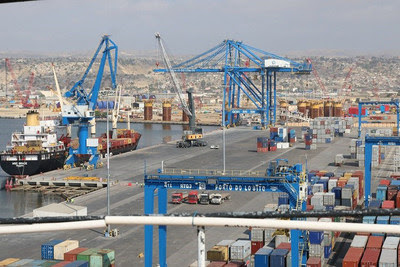LOBITO, Angola, June 23, 2021 /PRNewswire/ — An International Public Tender for the concession of the Commercial Port of Lobito’s Multi-Purpose Container and General Cargo Terminal is still open. The purpose of the tender is the management, exploitation and investment in expanding the capacity of the Commercial Port of Lobito’s Multi-Purpose Container and General Cargo Terminal, a port infrastructure comprising a total area of 241,540.94 m2, with the capacity to handle over one million tonnes of non-container cargo and 250,000 TEUs.

The deadline for the submission of applications is August 16, 2021 and the above-mentioned tender is aimed at foreign companies or business associations that have demonstrable experience in the activity in question or that meet the requirements demanded in the program.
Companies interested in participating in the tender must meet the following requirements:
- A paid-up equity capital of no less than the equivalent of 25 million USD (Twenty-Five Million U.S. Dollars).
- An average annual business volume for the last 3 financial years of no less than the equivalent of 100 million USD (One Hundred Million U.S. Dollars).
- A net asset value of no less than the equivalent of 100 million USD (One Hundred Million U.S. Dollars).
- In terms of their technical capacity, applicant companies must have, directly or through subsidiaries, a share of no less than 25% in at least 3 concession operations for port terminals in the last 3 years, including at least 50% in one of those operations, with an average annual traffic over the last three years of no less than 250,000 TEUs (Two Hundred and Fifty Thousand TEUs).
Bidders must submit their applications in a physical format, to the headquarters of Empresa Portuária do Lobito, specifically to the Concessions room, located in the Lobito Port Container Terminal building, 1.º andar, Rua 1 de Dezembro, between 9:00 a.m. and 5:00 p.m., and they must be addressed to the Comissão de Avaliação das Concessões.
Given the importance of this tender, your Social Communications department is invited to share the above press release.
For more information on applications, interested parties should visit the following links:
Photo – https://mma.prnewswire.com/